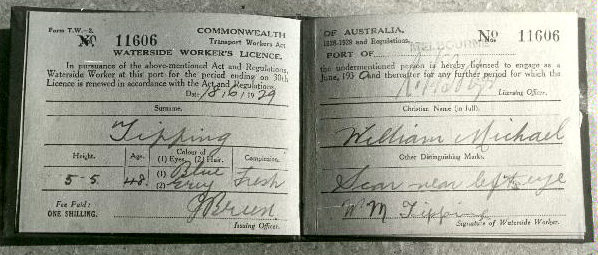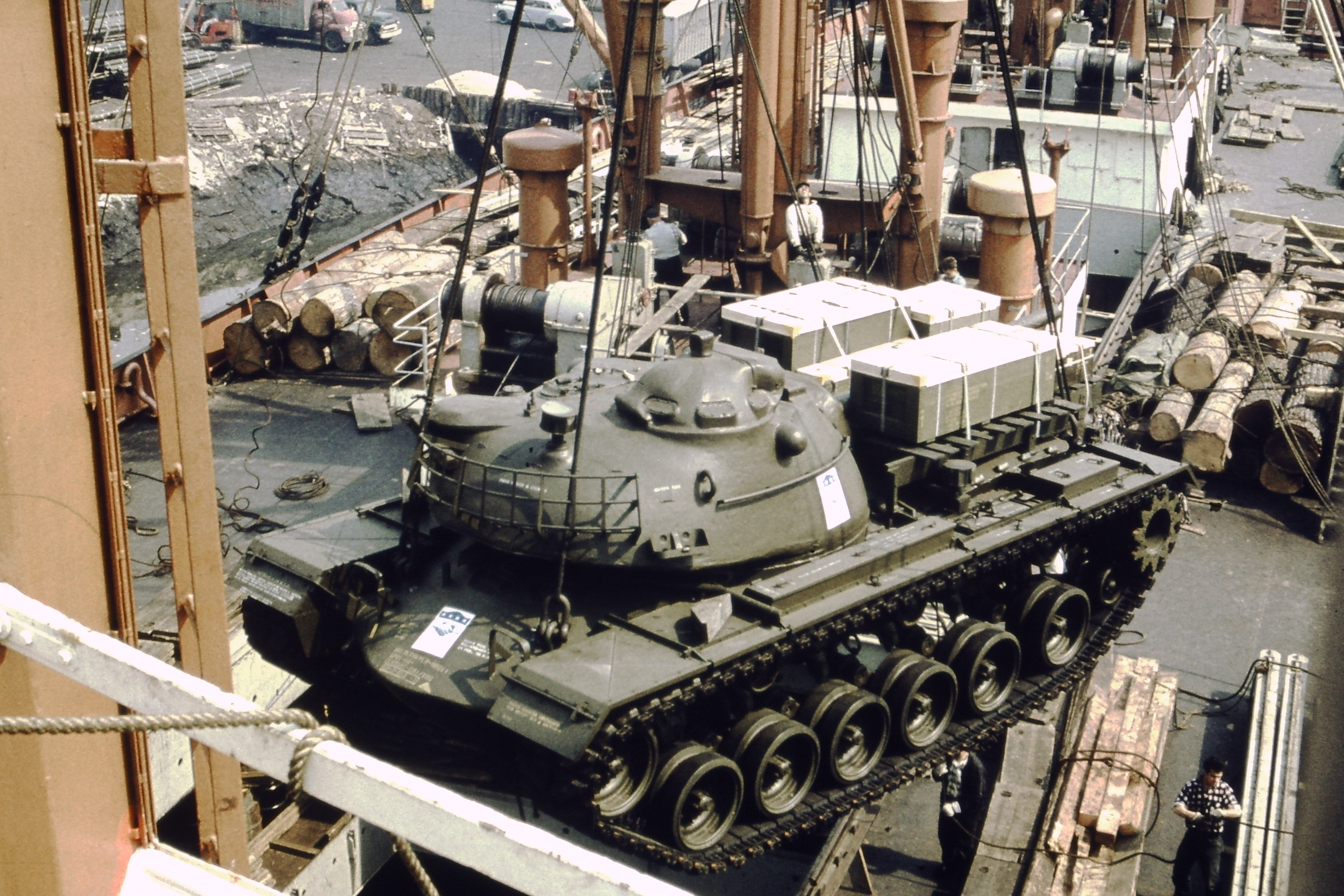|
Transport Workers Act 1928
The ''Transport Workers Act 1928'' (Cth), more widely known as the Dog Collar Act, was a law passed by the Australian Parliament. It achieved royal assent on 24 September 1928, after being instigated and introduced to Parliament by the Bruce government (Nationalist Government of Stanley Bruce). It was ostensibly "relating to employment in relation to trade and commerce with other countries and among the states", which mirrors the wording of Section 51(i) of the Constitution of Australia. Background Following a review of the establishing act of the Commonwealth Court of Conciliation and Arbitration (the Commonwealth Conciliation and Arbitration Act 1904), the government required that the court consider the economic affect of its industrial awards and that mandatory court-supervised ballots. Act The Act required all waterfront workers to hold federal licences, or "dog collars" as they were derisively known, to work. The Act allowed the Commonwealth government, by regulation, t ... [...More Info...] [...Related Items...] OR: [Wikipedia] [Google] [Baidu] |
Parliament Of Australia
The Parliament of Australia (officially the Federal Parliament, also called the Commonwealth Parliament) is the legislature, legislative branch of the government of Australia. It consists of three elements: the monarch (represented by the Governor-General of Australia, governor-general), the Australian Senate, Senate and the Australian House of Representatives, House of Representatives.Constitution of Australia, Section 1 of the Constitution of Australia, section 1. The combination of two elected chambers, in which the members of the Senate represent the States and territories of Australia, states and territories while the members of the House represent electoral divisions according to population, is modelled on the United States Congress. Through both chambers, however, there is a Fusion of powers, fused executive, drawn from the Westminster system.. The upper house, the Senate, consists of 76 members: twelve for each state, and two each for the territories, Northern Terr ... [...More Info...] [...Related Items...] OR: [Wikipedia] [Google] [Baidu] |
Permanent & Casual Wharf Labourers Union Of Australia
The Permanent & Casual Wharf Labourers Union of Australia (PCWLU) was an Australian union for maritime labourers. The Union was established in opposition to the Waterside Workers' Federation of Australia. Branches were founded by "loyalists" in Sydney in response to the General Strike of 1917 and amalgamated in 1919.''Loyalist Branches to Amalgamate'', The Mercury, 16 May 1919, p5cCommunists not wanted by Waterside Union CT 24 July 1946 Page 2e The union was not affiliated with Trades Hall, and was subsequently registered in 1926 under the ''Australian Conciliation and Arbitration Act (1904)'', and reregistered in the following year.Commonwealth Arbitration Court SMH 17 Nov 1926 Page 12b Conflict between the two unions erupted into physical violence in 1931 on the steamer Kowarra moored at Lee Wharf in Newcastle.Rival Unionists – Free Fight on Wharf SMH 30 Apr 1931 Page 13 In 1946 the union applied for affiliation with its rival but was rebuffed on the charge that they were ... [...More Info...] [...Related Items...] OR: [Wikipedia] [Google] [Baidu] |
Transport Legislation
Transport (in British English), or transportation (in American English), is the intentional Motion, movement of humans, animals, and cargo, goods from one location to another. Mode of transport, Modes of transport include aviation, air, land transport, land (rail transport, rail and road transport, road), ship transport, water, cable transport, cable, pipeline transport, pipeline, and space transport, space. The field can be divided into infrastructure, vehicles, and business operations, operations. Transport enables human trade, which is essential for the development of civilizations. Transport infrastructure consists of both fixed installations, including roads, railways, airway (aviation), airways, waterways, canals, and pipeline transport, pipelines, and terminals such as airports, train station, railway stations, bus stations, warehouses, trucking terminals, refueling depots (including fueling docks and fuel stations), and seaports. Terminals may be used both for intercha ... [...More Info...] [...Related Items...] OR: [Wikipedia] [Google] [Baidu] |
History Of Transport In Australia
History (derived ) is the systematic study and the documentation of the human activity. The time period of event before the invention of writing systems is considered prehistory. "History" is an umbrella term comprising past events as well as the memory, discovery, collection, organization, presentation, and interpretation of these events. Historians seek knowledge of the past using historical sources such as written documents, oral accounts, art and material artifacts, and ecological markers. History is not complete and still has debatable mysteries. History is also an academic discipline which uses narrative to describe, examine, question, and analyze past events, and investigate their patterns of cause and effect. Historians often debate which narrative best explains an event, as well as the significance of different causes and effects. Historians also debate the nature of history as an end in itself, as well as its usefulness to give perspective on the problems of the p ... [...More Info...] [...Related Items...] OR: [Wikipedia] [Google] [Baidu] |
Acts Of The Parliament Of Australia
The Acts of the Apostles ( grc-koi, Πράξεις Ἀποστόλων, ''Práxeis Apostólōn''; la, Actūs Apostolōrum) is the fifth book of the New Testament; it tells of the founding of the Christian Church and the spread of its message to the Roman Empire. It gives an account of the ministry and activity of Christ's apostles in Jerusalem and other regions, after Christ's death, resurrection, and ascension. Acts and the Gospel of Luke make up a two-part work, Luke–Acts, by the same anonymous author. It is usually dated to around 80–90 AD, although some scholars suggest 90–110. The first part, the Gospel of Luke, tells how God fulfilled his plan for the world's salvation through the life, death, and resurrection of Jesus of Nazareth. Acts continues the story of Christianity in the 1st century, beginning with the ascension of Jesus to Heaven. The early chapters, set in Jerusalem, describe the Day of Pentecost (the coming of the Holy Spirit) and the growth of the ... [...More Info...] [...Related Items...] OR: [Wikipedia] [Google] [Baidu] |
Australian Labour Law
Australian labour law concerns Commonwealth, state, and common law on rights and duties of workers, unions and employers in Australia. Australian labour law (also known as industrial relations law) has a dual structure, where some employment issues and relationships are governed by Commonwealth (the Australian federal government) laws, and others are governed by state and territory laws or the common law. It shares a heritage with laws across the Commonwealth of Nations, UK labour law and standards set by the International Labour Organization, the Australian legislature and courts have a built a comprehensive charter of rights at work. Constitutional basis The conciliation and arbitration power of the Commonwealth was originally based on Section 51(xxxv) of the Constitution of Australia, which provides: :"The ommonwealthParliament shall, subject to this Constitution, have power to make laws for the peace, order, and good government of the Commonwealth with respect to: ::(xxxv ... [...More Info...] [...Related Items...] OR: [Wikipedia] [Google] [Baidu] |
1928 In Australian Law
Nineteen or 19 may refer to: * 19 (number), the natural number following 18 and preceding 20 * one of the years 19 BC, AD 19, 1919, 2019 Films * ''19'' (film), a 2001 Japanese film * ''Nineteen'' (film), a 1987 science fiction film Music * 19 (band), a Japanese pop music duo Albums * ''19'' (Adele album), 2008 * ''19'', a 2003 album by Alsou * ''19'', a 2006 album by Evan Yo * ''19'', a 2018 album by MHD * ''19'', one half of the double album ''63/19'' by Kool A.D. * ''Number Nineteen'', a 1971 album by American jazz pianist Mal Waldron * ''XIX'' (EP), a 2019 EP by 1the9 Songs * "19" (song), a 1985 song by British musician Paul Hardcastle. * "Nineteen", a song by Bad4Good from the 1992 album ''Refugee'' * "Nineteen", a song by Karma to Burn from the 2001 album ''Almost Heathen''. * "Nineteen" (song), a 2007 song by American singer Billy Ray Cyrus. * "Nineteen", a song by Tegan and Sara from the 2007 album '' The Con''. * "XIX" (song), a 2014 song by Slipknot. ... [...More Info...] [...Related Items...] OR: [Wikipedia] [Google] [Baidu] |
Stevedoring Industry Act 1949
A stevedore (), also called a longshoreman, a docker or a dockworker, is a waterfront manual laborer who is involved in loading and unloading ships, trucks, trains or airplanes. After the shipping container revolution of the 1960s, the number of dockworkers required declined by over 90%. Etymology The word ''stevedore'' originated in Portugal or Spain, and entered the English language through its use by sailors. It started as a phonetic spelling of ''estivador'' (Portuguese) or ''estibador'' (Spanish), meaning ''a man who loads ships and stows cargo'', which was the original meaning of ''stevedore'' (though there is a secondary meaning of "a man who stuffs" in Spanish); compare Latin ''stīpāre'' meaning ''to stuff'', as in ''to fill with stuffing''. In Ancient and modern Greek, the verb στοιβάζω (stevazo) means pile up. In the United Kingdom, people who load and unload ships are usually called ''dockers''; in Australia, they are called ''dockers'' or ''wharfies''; and ... [...More Info...] [...Related Items...] OR: [Wikipedia] [Google] [Baidu] |



.jpg)
.jpg)
